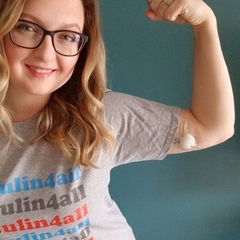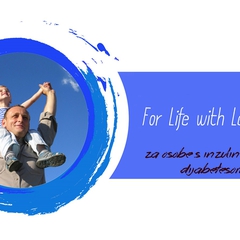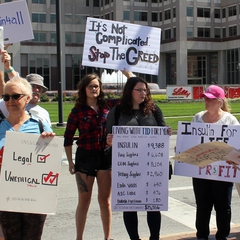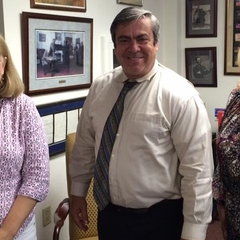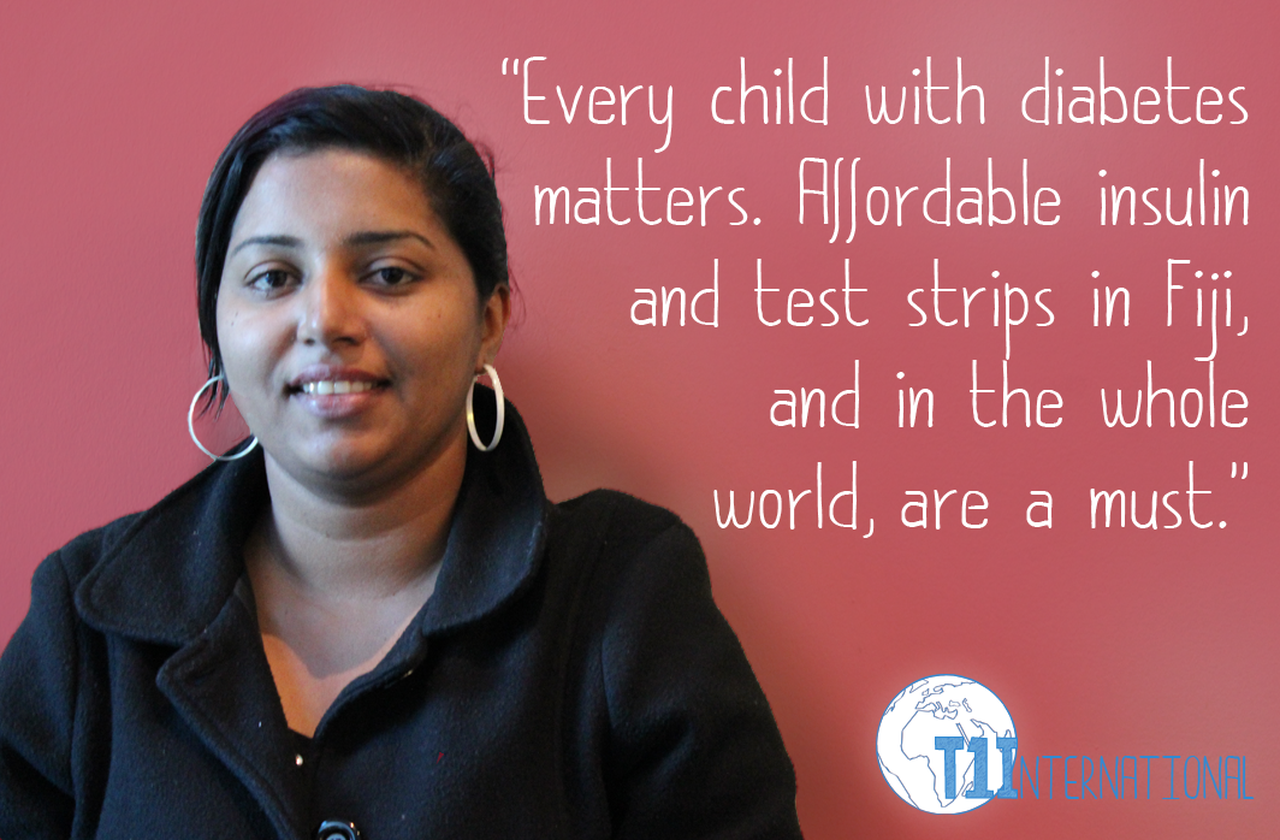
Advocacy with Outcomes in Fiji
22 Apr 2016, 1:38 p.m. in Global Stories, Interviews by Elizabeth Pfiester
I had a chat with Shivanjani Iyer, a Young Leader in Diabetes from Fiji. She is doing amazing things for people with type 1 diabetes there, and advocating in a way that is seeing positive outcomes. We hope her example will inspire others to take similar actions and we at T1International are here to support your efforts!
Can you tell me a bit about life with type 1 diabetes in Fiji?
In Fiji, there is no compulsory health insurance for the general public so most people rely on the government hospitals for their medical needs and supplies. Those working for big professional organisations such as banks are sometimes provided with an optional health insurance by the employer. All health insurance plans in Fiji cover insulin but not the glucometers and strips. Less than 20% of the entire population has health insurance, so the common man relies on the government pharmacy or else he must pay from his pocket for his insulin.
Insulin is meant to be provided free at the government pharmacy, which is located in the capital city, and the main pharmacy distributes insulin to the individual clinics throughout the country. The individual clinics sometimes fail to restock enough insulin and the people are then forced to buy from the private pharmacy. Also in Fiji there is no pens or pumps. Everyone on insulin uses syringes and needles. A pack of 10 syringes cost $3 USD.
The kids younger than age 14 that are living with diabetes attend the pediatric clinic and are given a free glucometer and test strips as long as they are in supply. The strips come in the form of donations from other countries. When the donations are out of supply, the kids have to purchase them from a private pharmacy.
People with diabetes above age 14 are seen at the adult clinic and they have to buy their glucometers and strips from a private pharmacy. A pack of 50 strips will cost around USD $30. This is extremely expensive for common people whose average wage is around $100 USD weekly. With people struggling to bring food to table, buying strips for type 1 children becomes a very secondary matter. Parents are left with two options: either forget about diabetes management or resort to other solutions. I have heard experiences where a mother had to engage in prostitution in order to buy strips for her kids. As a mother myself, I understand the need to go to extremes to save my child. Another parent actually tried to steal a pack of strips from a private pharmacy.
Personally, since my diagnosis I have had to purchase my own supplies. Coming from a very humble background I could only test my sugar once every two months upon going to my diabetes clinic at the public hospital. I bought my own set of glucometer and strips once I received my scholarship allowance when I was 19 years old. Only from that time could I afford to test my sugar three times a week.
Please share about the work you do for people with diabetes in your country.
The above experiences motivated me to start a youth group supporting underprivileged kids living with diabetes in Fiji. My group, known as Young Diabetes Fiji, operates as a youth wing of the member association Diabetes Fiji Inc. My group sought funding from businesses in the community to buy supplies for the kids. After a year of doing this I realized that our assistance was only temporary. It was not guaranteed for the future and children had to rely on donations. I decided that there needs to be a change in law whereby these medical supplies should be made available to everyone with diabetes at minimal cost. That is how we started off with our advocacy efforts.
At the end of last year we had a Pacific young leaders in Diabetes Congress where 7 pacific countries participated by sending two capable young people living with type 1 diabetes to be trained in Fiji. This is the first time such a platform was developed for the lower-income south pacific countries. The leaders were trained to become a voice for young people living with diabetes in their countries. We hope that they can organize similar youth movements in their own countries.
What kind of advocacy do you do to try to change the situation for people with diabetes?
We do a lot of advocacy for access to insulin, glucometer and strips for all. I do not support in the idea that free supply of glucometers and strips should be allocated to only kids younger than 14 years. I understand the government has to limit the age due to limited resources, but everyone needs insulin and supplies, no matter what their age. A fifteen year old is still a minor and still in school, so why are they expected to pay for these things suddenly? We are advocating moving away from an age-based criteria to a financial/need-based criteria so that all who need it can be assisted.
The problem is that hardly anyone speaks about the challenges of living with diabetes, thus the government is very much unaware of the real life situation. We voice our concerns through media, and make requests to the government. Wherever there is an opportunity, we represent the voice for young people living with diabetes. I represented my group at the Fiji National Youth Parliament and raised issues of living with type 1 diabetes.
We have been able to work with the clinic nurses so that kids above the age of 14 can attend pediatric clinics to be able to qualify for free strips. This is going against the health policy but I believe the policy is less important than the individual. Policies are made for the people. People are not made for policies! If a policy doesn’t attend to a basic right, then it must be challenged. So this is our continuous fight and we hope to see a change in the law soon.
We have also been receiving complaints from our type 1 adults about being not offered a job or getting terminated due to their diabetes. We take such concerns to the Employers Federation (National Association of Employers) to ensure our rights are protected and that we are not discriminated due to our non-preventable condition. We make presentations and requests to ensure the employers council is aligned to our rights.
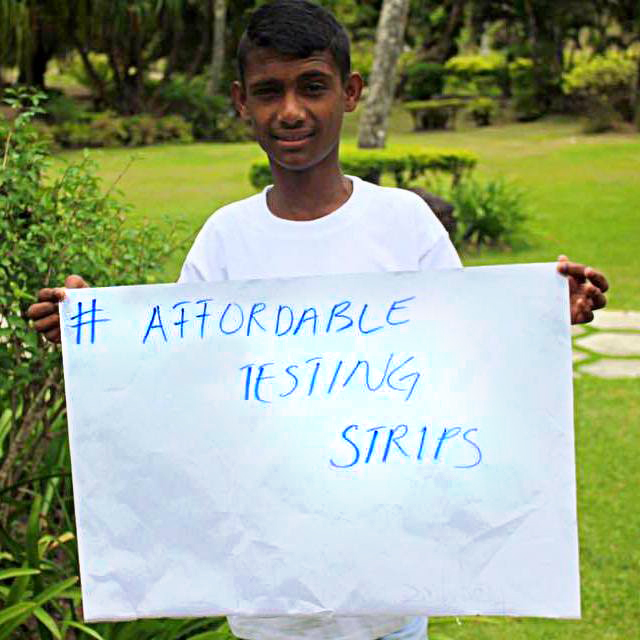 What successes have you had with your advocacy efforts?
What successes have you had with your advocacy efforts?
In 2015 our concern about high prices of blood glucose machines and strips meant that we asked for a subsidy for these things, providing a lot of information and evidence together with a proposal which was presented to the government. Along with our advocacy partners we succeeded in getting the Fiji government to lower the customs duty from 5% to 0% on glucometers and test strips for 2016.
Another issue was that in the past, other countries would sell their soon-to-be obsolete stock of strips to Fiji at cheap prices. Patients would purchase the machine and strips at these cheap prices but their supply of strips would run out in few months and then the machine was of no use because there were no available strips for it. In 2015 we partnered with the consumer council to advocate on this issue. We did research, collected evidence of the need and benefit of availability of appropriate test strips. We went from patient to patient gathering information in-person because in Fiji less than 50% of people have internet access. We analysed the evidence, wrote petitions to ministers and brought the issue to the media with the help of the consumer council. Thanks to our efforts the issue is pretty much solved. Not only is the customs duty at zero, but pharmacies now can only offer blood glucose machines that guarantee the supply of strips for the next 5 years. This is a binding agreement between the government and pharmacies.
What is next for you and your group?
We will be advocating for Social welfare benefits for the underprivileged kids living with type 1 diabetes. The government provides minimal social welfare benefits to widows, handicapped and senior citizens. They get a USD $30 food voucher and $30 USD cash on monthly basis. The idea is to ensure that some of the underprivileged kids living with diabetes receive these benefits. This idea came to me after meeting an 18 year old kid who could not afford his bus fare to go to clinic and buy his medications. Clinic visits are usually once a month or once every two months, so these social welfare benefits will help underprivileged kids take care of their basic medical needs. We have continuously been working with the government’s social welfare department on this, with a verbal approval and nearing an official approval.
A few years back in a pacific island country, there were two type 1 kids living in the same community. One child was 7 years old and other boy was 14. During a natural disaster the 7 year old had lost everything, including his medication. After a few days no insulin aid was provided. The 14 yr old gave away his only bottle of insulin to the 7 year old. Still, no help came and after a week or so the 14 year old died because he had no insulin. He had saved the 7 year old but did not survive himself.
Because of these types of situations, we are working on a formal disaster plan for South Pacific and Pacific Island countries. One of the most severe times of lack of insulin is during the natural disasters. We have designed a plan and reserved some funding so that insulin can be bought and mobilized quickly during natural disasters. We have a register of all type 1 kids in Fiji and we continuously update the records.
Wow. Keep up the amazing work, Shivanjani! We stand with you in your advocacy and activism.




